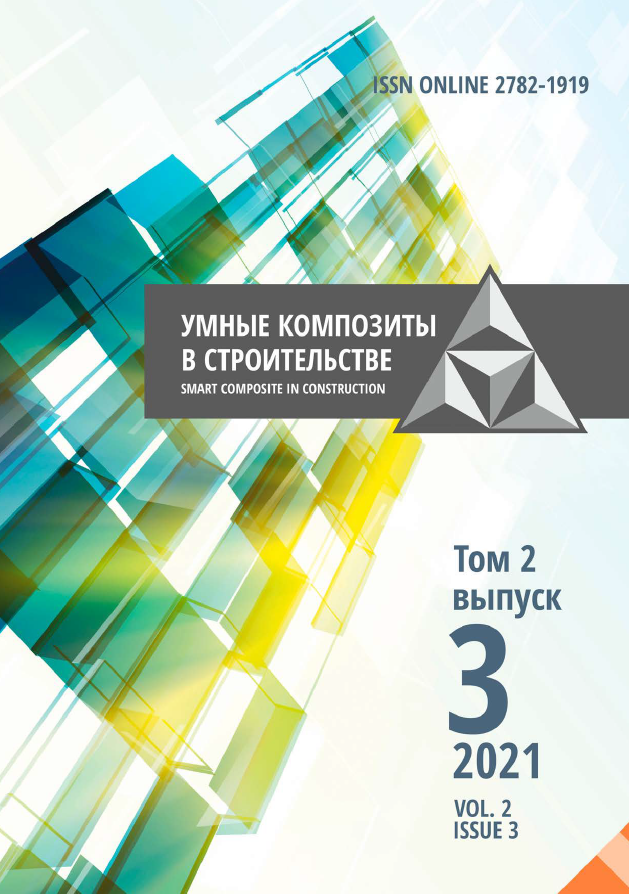Vladimir, Vladimir, Russian Federation
UDC 625.8
Recently it has become quite important to improve the quality of paving asphalt and study the influence of the properties of the binder on the asphalt concrete performance. Research conducted at the Department of Highways of Vladimir State University has shown that even the most effective modifying additives used in road construction do not always give the required result, or the result is achieved by introducing a significant amount of modifier, which gives a noticeable increase in the cost of binder and asphalt concrete that use it. The purpose of this work is to select a new (previously not used in the Vladimir region) modifier for bitumen used in road construction companies in the Vladimir region, and study its properties. The results of experiment were used to develop the procedure of experimental tests, determine the properties of obtained modified binder, comp are with the properties of original samples, select additives composition, mold and test samples on the obtained modified binder. The results allowed us to conclude that the applied modifier gives better performance than the previously used modifiers.
paving asphalt, modifier, nanomodifier, carbon nanotubes, rutting, crack resistance, asphalt concrete
1. Kosolapov A.V. Application of nanotechnologies in construction. URL: http://www.naars.ru (in Russian).
2. Vikhrev A.V., Provatorova G.V., Semekhin E.F., Varzin E.I. Ways to improve the quality of organomineral mixtures. Mezhdunarodnayanauchnayakonferenciya «SPbWOSCE. Energoeffektivnost' iustojchivoerazvitie v grazhdanskomstroitel'stve» 16-17 noyabrya 2017 goda (in Russian).
3. Handelsman. I., Zakrevskay L., Provatorova G. The influence of modified binders on the technological and operational properties of composite building materials. International Scientific Conference on Energy, Environmental and Construction Engineering (EECE-2018) electronic edition. «MATEC Web of Conferences». 2018. V. 245. N 8.
4. Mishchenko S.V., Tkachev A.G. Carbon nanomaterials. Production, properties, application. M.: Mashinostroenie. 2008. 320 p. (in Russian).
5. Zaporotskova I.V. Carbon nanomaterials for road construction. Volgograd: VolGU. 2009. 469 p. (in Russian).
6. Transport strategy of the Russian Federation for the period up to 2030. URL: http://www.mintrans.ru/documents/detail (in Russian).
7. Harris, P. Carbon nanotubes and related structures. New materials of the XXI century. M.: Technosphere. 2003. 364 p. (in Russian).
8. Barshchevsky A.Ya., Ioffe I.N., Sidorov L.N., Troyanov S.I., Yurovskaya M.A. Nanotechnological community Nanometer. 2007. URL: http://www.nanometer.ru, free (in Russian).
9. Bulyarskiy S.V. Carbon nanotubes: technology, property management, application. Ul'yanovsk: LLC «Strezhen». 2011. 478 p. (in Russian).
10. GOST 33133-2014. Public roads Oil bitumen road viscous technical requirements. M.: Standartinform. 2019 (in Russian).
11. GOST 58406.2-2020. Public automobile roads. Mixtures of hot asphalt concrete and asphalt concrete. Technical conditions (approved and put into effect by the Order of Rosstandart of 15.05.2020 N 192-st). M.: Standartinform. 2020 (in Russian).
12. Shafabakhsh G.H., Sajadib S.R.Evaluation of rheological behavior of bitumen modified with Nano Copper Oxide. International Journal of Engineering and Technology (UAE). 2018. N 7(4). P. 13-18.
13. Gaus A., Darwis M., Imran. Influence of hot asphalt mixture using asbuton on road composite pavement. AIP Conference Proceedings. (American Institute of Physics Inc.). 2017. V. 1903. 050007.







